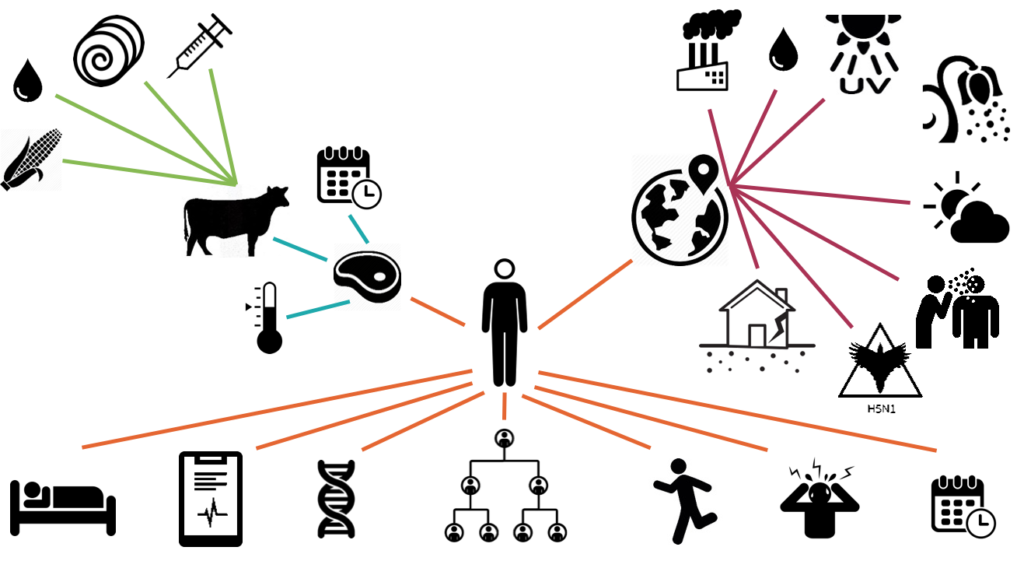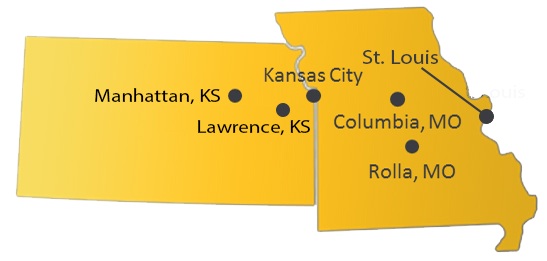SENIORS
Proactively identify critical changes (steps, gait, sleep, diet, vitals, medications, and stress)
DISADVANTAGED
Provide an improved form of healthcare for those who do not have access
CHILDREN
Reverse paucity of data
VETERANS
Veteran-specific correlation factors (trace chemical exposure, stress, sunlight)
Everything connected to us impacts our health: the food we eat, the environment, our genetics and activities. What if we could sense and connect these factors? What if we could make better decisions about our healthcare and life quality using this knowledge?

One Health Intelligence is a partnership of over 40 Kansas City Corridor public, private, and community organizations to include all of the following areas:
- Technical research, development and deployment
- Human and animal clinical evaluations, and crop traceability
- Community resources for project prioritization, coordination, and training
Innovations from this program will result in economic growth for the region, provide individuals with comprehensive and integrated personalized health information, and serve as a national model.

Remote patient monitoring can..
Reduce chronic disease expenses by over $200B1
- Chronic Disease Expenditures ($T)
- All Other Expenditures ($T)
Reduce Health Costs 18%. 2
Decrease Sick Days 44%. 2
Reduce Emergency Hospital Re-admissions by 45% 4
The Current Cost of 3.3 Million Emergency Hospital Re-admissions3
1) Internet of Things, Vol. 5. (2015) Goldman Sachs Global Investment Research.
2) Northwestern School of Professional Studies, 3-year study, HumanaVitality program rewarding employee wearables
3) Conditions With the Largest Number of Adult Hospital Readmissions by Payer, 2011. (2014) Agency for Healthcare Research and Quality
4) Imison C, et al. (2016) Delivering the benefits of digital health care. Nuffield Trust, One Healthcare System, Using Precision Medicine Analytics at Discharge













